How did the protests begin, what was the main motivation?
The protests started, let me go back to my notes. The October 17th revolution started after the ministry of telecommunication decided to impose a tax on Whatsapp. So, it is very high tax for every Whatsapp users. This small event is like the top of the iceberg that erupted to whole revolution. Because people felt, in my opinion of course, people felt like they were being insulted. You know it was not only about paying more taxes because Lebanese people pay a lot of money for basic services but Whatsapp is their only free service they get even they pay a lot of money for the internet and they have very bad service of internet. So, they were using Whatsapp, it was like the hub for connecting with their diaspora, for finishing their business for conducting business. All people use Whatsapp because it was really the only free service that they get. So, it was not only illogical to impose a tax on something like that but there was adding insult…. And this came at the time where there was just a week before there was a devastating fire that has erupted whole country. Really it devastated a lot of the green areas. The government did not do anything. Basically people and civil society and individual initiatives that tried to put down fire. This is what saved the rest of the green areas. So, people were very angry. They realized that they know that there is a political disaster in the country. But they realized that if there is also a natural disaster there is no response.
There was a big wave of jokes, arguments on social media, making fun of the government, people were angry, criticizing the situation. In spite of doing something or being apologetic, the authorities found the activists and people who wrote on social media and they brought them to interrogations. People even more angry. Also before that there was monetary crises that started. You would go to the bank, they would not give you dollars. There was a lack of dollars and foreign currency. In Lebanon, this is a major problem because people rely a lot on dollars and foreign currency not only Lebanese lira.
And the bigger context is that for the past couple of years mainly the last 7-8 years, there has been an economic crises in the country. There is more and more unemployment. The graduates cannot travel, usually Lebanon is a country where the middle class goes to university and they get good education then they travel to world and then they support families. So this bulk of people they graduated they cannot go out anymore. Especially they used to go to the Gulf to Dubai, to Saudi Arabia to Arab countries. But this door was locked, Europe door was locked as well and they stay to stop. So, anger was building up for many years. And you have the whole regional situation the war in Syria with the whole political events that were happening and this Whatsapp tax came. And then it whole erupted. It was like enough is enough. This the context of October 17th movement.
You have already talked about unemployment. And there are also inequalities and poverty.
You mean social inequalities. Well this is not new, in Lebanon you have shrinking middle class and very small percentage of population are extremely rich. All of the poor are getting poorer. So, the economic situation and everyday life are becoming very difficult. In Lebanon you pay for everything, you pay for electricity and the generator, for the water and the water depot by privately because there is no enough water. You pay for social security and for insurance companies. So, even for your health the private sector is kind of a matter. Education as well. It is very expensive country for its people. At the same time, they cannot get the services that they pay for it. For example today, in Beirut there is electricity cut for 8 eight days, the electricity was coming for only 3 hours. And it is the capital. This situation has been going on for years in other parts of the country. And we pay the highest electricity in the region. So, how do you expect that investors to come, put money where they don’t have electricity, they don’t have internet, they don’t have infrastructure. So, this country was surviving by miracle. It doesn’t have any foundation for surviving.
And also, we see similar protests all around the world like Chile. What do you think about that? Are our matters common?
Well, you have now Sudan, Algeria, Lebanon and Iraq that they have the second waves of the protests. The first wave was in 2011 and like Egypt, Syria, Libya, Tunisia that were first wave of Arab Spring. Now it is like the second wave, but the demands are almost all the same. People want to live in dignity in their countries. And now more than before more than 2011, people are asking for basic human services. More than political power. But at the end it is political. Because when you have non-functioning government over years, then your electricity bill is related to policies that are not functioning.
What about the profile of the protestors? Who are at the streets?
Okay, this is very important point. The most important thing is they are not partisans. No political parties. The second important point is that they are people living out there sectarian affiliations. And this is the first time that you have Shiites demonstrating against Hizbullah. So, this had happened in 1980s but did not happen in this big scale like now. You always have people that are non-sectarian, progressive, but having every community protesting against its own leaders, this is very new.
You have also age of the protesters. The starters of protests are basically very young. They surprised us. You know that the young people are lazy, they don’t do anything they are under mobile phones. All of a sudden you see a whole generation that takes the streets that they have agendas that they did their homework, they know exactly their constitution, they know the law, they know the economic data and they have program. So it is very new. And the eldest generation followed. At the first, mothers and fathers did not want to participate because this generation has witnessed the war. So, this generation is always afraid that the war will come back. But the younger generation did not witness the war, they did not profit from the peace. The peace years I mean after 92 until now, this is a whole new generation there was no war but the peace period was all corruption, was sectarianism was like if you want to get a job you have to talk with your political leader. You cannot get a job only by your qualification. So, it is whole disappointing experience of peace.
And there is another very important matter of profile of the protestors. This is a very feminist revolution by all means. In Lebanon we always have women taking part of demonstrations they even took the armies during the war. They are fighters but this time, they are not only participants, not only participating in numbers but they also have their agenda. Because Lebanon is a very progressive country. But the laws is not progressive at all. For example women wear miniskirts but this is not how you measure things. The laws are very patriarchal the society is very patriarchal. So women took the streets also as women and asking for rights as women. So, women came with their own feminist agenda like we are citizens, we have the right of equal citizenship. This is very strong, very unseen before.
Also as you said that mostly protestors are young people. And as you said before, this is assumed that these young people did not experience the war, the sectarian clashes so, they don’t have memory about that. They can get together easily for their economic matters regardless of their sects. Is it because they did not experience sectarian clashes? Do you agree?
Well, they experience economic sectarian wars and the political sectarian wars, they did not experience the military sectarian wars that was the civil war, but as I have told you the peace years after 92 until now, this peace was built on sectarian quotas. Now there is more exposure, they see that we deserve someone else. They don’t want to put up with what their parents have accepted under the threat that face “the war will come back”. This is like a war also. So, they know sectarian conflicts but it is not like civil war.
Because now, they created like a patriotic identity that is about sectarian divisions. This has shown also that the demonstrations are not only in Beirut. You had demonstrations in every city and small village of the country. So, usually when you want to demonstrate you come to Beirut the capital. But now, people are demonstrating everywhere. There is a national wave of uneasiness, of anger that let people to say “hey what is this political sectarian leader doing for me? He is now doing anything, he is corrupted, he is taking my money, he is robbing me actually and for what? I cannot even get a job. I cannot even get basic human services. So, why should I respect to him?”
And also, I have a question from one of the Gergedan writers. It is about the emergence of oligarchy that dominates the society, the politics the economy through nepotistic policies. How did it emerge? How did it begin?
This is a huge topic, I hope I can be useful. The thing is then again, Lebanon has always been a country that has more liberal economic policies than the region. We have the bank system that used to be very powerful and so it was like a magnet of investments, a magnet of money not only from Lebanon but from the region whoever is rich put their money in Lebanon. So, when they say Lebanon is Switzerland of the east it does not mean that because it is a very nice country. Because it has the same bank system as Switzerland it is like a tax heaven. You put money and don’t pay taxes, so this is it. And those banks become the major economic nerve of the country. You know now there is the banking crush, but until now we put our money in the banks and the banks invest the money in projects that belong to who? To politicians. So, politicians are making money out of our money and the money is circulating in a very small area.
The poor people don’t have the saving to put in the banks, the very rich people, most of them put money either in the banks in Lebanon or Switzerland. Who is affected the most is the middle class. Those people who have salaries who have life insurance who have savings who make education savings for their children. Those are the major people who are affected now. Those are the small to medium depositors of the banks and those are the people whose money is used for big projects of the rich people. And now, they blocked our money they are not giving us.
And we talk about some political figures but I wonder that who support protesters and who are against them.
At the beginning, the politicians wanted to play smart they said yes we are with the protestors. But at the minute the protestors saw them they kicked them out. There was also another point in this revolution. You have two major slogans: “all of them and not without exception.” The second one is basically against the minister of foreign affairs, as “mother fucker”. This revolution has a lot of insults, of personal insults. So at the beginning when they started shouting in the streets, the authorities say we will take the prison whoever says this. Because this is like against the law. All of a sudden all of the streets, all of the country from villages to big cities, all social media, every people was saying the same slogan. So there was no politician. They tried but they failed. Now, this is what they said: who is the leader of the demonstrations? We want a leader we want someone to discuss with. The demonstrators says no, we have not a leader. What they did is they took mirrors in the streets with the slogan: “I am the leader of the revolution.” And people take their photos and send it, and we have millions of “I am the leader of revolution so, government invite us to discuss.” It was very creative revolution. And this is very new because he authorities don’t know how would deal with this. They have a catalogue of dealing with political parties and confessionals. So, they have the tools to deal with sectarian demonstrations. But they don’t know how to deal with this, this is beyond their imagination. Every time they take a step you have the demonstrators that come up with more creative step.
In the middle east, in these countries, we see an Arab nationalism but it is not like a comprehensive nationalism but it is something like territorial. What do you think about that?
Exactly. You know the regimes that came to Arab countries after their independence from British and French were pan-Arab in the sense that we are all Arab world and all the same. Now there is a local nationalism. Lebanese are concerned Lebanese matters, Iraqis are concerned Iraqis matters. There is a patriotic awareness. Of course, in Iraq and in Lebanon the demonstrations are very much similar. They have almost the same mottos, slogans. They send each other messages of support. But at the end Iraqis are demonstrating for Iraq, Lebanese are demonstrating for Lebanon. It is not like before. This is now the second wave that is more local. Every country concerned its own business. It is like “let me finish my problems”. This tells us about two things.: About the economic system that has ruined our past decade. The free market, ‘Let have everything in private sector’, the state does not have any responsibility and also from the other side, it tells you that the so-called pan-Arabism has fade. Why do I care? Of course I care as a human being what happens in Libya but as a Lebanese citizen I am more concerned about my day to day life and Lebanon. And then, I would support something in Libya, Chile or elsewhere as a part of human concern. Not because I am Arab.
And don’t forget that this pan-Arabism has banned every other component of this area that is not Arab like in Libya you have Emevis, you have Kurdish people in Iraq. You have a lot of components, who said that they are all identified as Arab? What is an Arab in the first place? Are you speak Arabic? Okay, half of the globe speaks Spanish you know. This is an idea to rule people militarily and to stay in power for decades. And now, the people are wakening.
Also there is another point, another assumption that there is no Lebanese identity. In this regard, they argue that even the young people who started the protests speak English or French rather than Arabic. But now, this is also assumed that they can be united so, they can build a Lebanese identity.
Yes, this is what I have mentioned. We always spoke many languages in Lebanon and this is a good thing.. But yes, there is an emergence of Lebanese identity. That has started now. Exactly because people are letting their confessions away and they are starting to ask to be citizens. We have 18 official confessions. Can you imagine? It is a country with only 4 million people.
People are saying that we don’t want to be part of church or the mosque we want to be part of this country. This was also shown in very special way, this is the first time, people demonstrate with holding a Lebanese flag. Usually the Lebanese flag as like we have it on Independence Day in schools, it is like a folklore. It does not mean anything to people to see a Lebanese flag. I know in Turkey this is very unusual. But people started to fly the Lebanese flag on their balconies and in demonstrations they were all holding the Lebanese flag and no other flag. Usually people go and they hold their political parties flags. So, this is also another way of building of a national identity. And I believe whatever happens now and the things are not going to a good end as I see but what has been done in those three months you cannot underestimate.
It is very interesting, I have studied nationalism and also I know the Turkish example, I see Turkish people’s attitudes and how it is going on but it is 2020 and in Lebanon it is a new idea.
You know Lebanese people outside of the Lebanon, the diaspora are very nationalistic. They all get together they have each other. It is some kind of national solidarity. Even in 1970s when the older generation used to go demonstrations for national causes it was more the left, the socialist the communists, it was not local.
It was more ideological.
Yes.
Also, there is one question too from Gergedan writers. This is said that Lebanese protests are different from other protests in Arabian world because in other countries people are protesting against authoritarian states but in Lebanon the protests are because of the lack of the state. Do you agree?
Actually this is very true. Because in Lebanon the weakest player in this game is the state. And you can see this in Iraq. Political class basically has made a system of clientelism that is much stronger than state itself. For example, the banks are deciding against the constitution what to do with people’s money. There is an association of defending consumers, those are official associations that belong to state and they should defend people in this crisis but they don’t do anything so the private banks are stronger than the government. This goes on many other levels. For example the army of Hizbullah is stronger than the Lebanese army. And so on and so for, yes people are demonstrating against the political system but not against the state. Basically the state is weak.
This is the last question. You have already talked about that. Some people said that this is continuation of the so-called Arab Spring. What do you think about that?
Somehow yes. This whole region has not seen just political system for many years. If you don’t have justice, if you have corruption, if you ask for electricity and then they tell you yes, but then you have to fight as well, we will fight as well because I need electricity. I need to live. So as long as you don’t have a functioning political system, you will still have waves and waves of revolutions. Yes, the process started in 2011 but in Lebanon it started in 2005. When Hariri was assassinated and people took the streets to kick the Syrian army out. So, we were a country up until 2005, you would have Syrian check points in the streets. You would have the images of Bashar al Assad and Hafez al Assad. Can you imagine? It is not 30 years ago, it is just few years ago. As long as this dysfunctional governments and dictatorships rule even it is a dictatorship of confessionals and money like Lebanon, you will still have people and generations to take the streets. This is only normal.
I think it is enough. Thank you for your time.

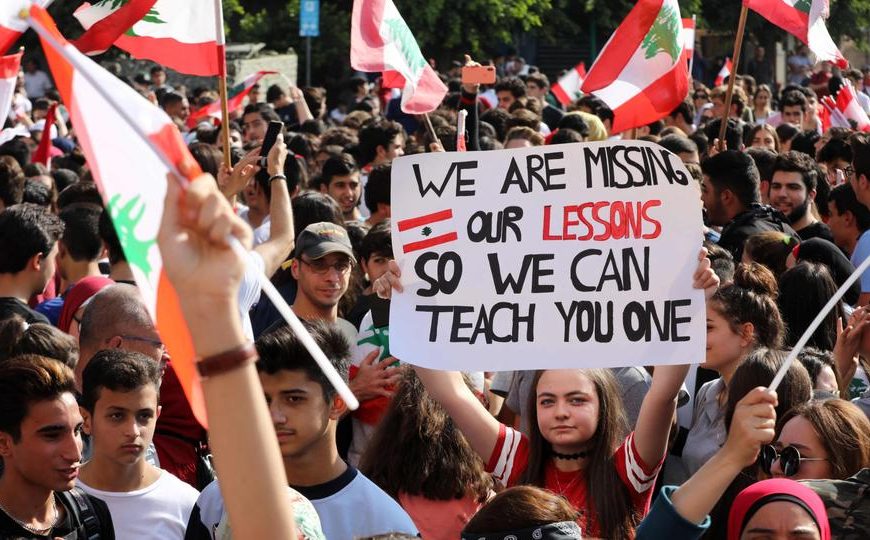
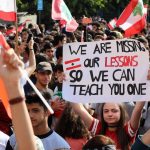

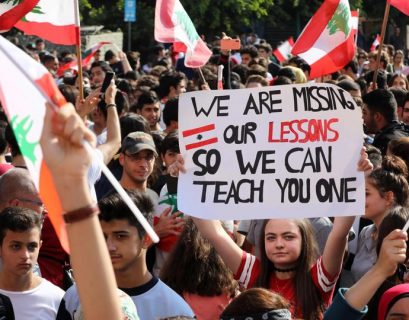
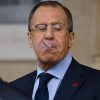
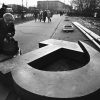
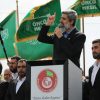
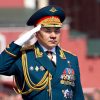
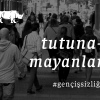
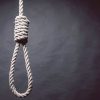
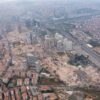
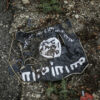
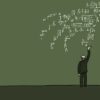
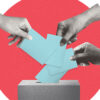
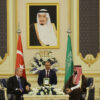
https://biotpharm.com/# buy antibiotics over the counter
cheapest antibiotics: BiotPharm – over the counter antibiotics
buy antibiotics BiotPharm buy antibiotics over the counter
best online doctor for antibiotics: Biot Pharm – antibiotic without presription
top rated ed pills cheap ed meds Ero Pharm Fast
Ero Pharm Fast: online ed medication – Ero Pharm Fast
Ero Pharm Fast Ero Pharm Fast Ero Pharm Fast
buy antibiotics from india: BiotPharm – over the counter antibiotics
buy antibiotics for uti over the counter antibiotics get antibiotics without seeing a doctor
best online doctor for antibiotics: buy antibiotics online uk – buy antibiotics from india
Ero Pharm Fast ed meds on line best online ed treatment
buy antibiotics from canada: buy antibiotics online uk – buy antibiotics
best online doctor for antibiotics antibiotic without presription buy antibiotics for uti
pharmacy online australia: Discount pharmacy Australia – Buy medicine online Australia
Buy medicine online Australia Pharm Au 24 Buy medicine online Australia
Medications online Australia: Buy medicine online Australia – Buy medicine online Australia
ed online treatment ed meds online Ero Pharm Fast
get antibiotics without seeing a doctor: buy antibiotics online – buy antibiotics from india
viagra en ligne: prix bas Viagra générique – prix bas Viagra générique
commander Viagra discretement Meilleur Viagra sans ordonnance 24h Viagra generique en pharmacie
cialis sans ordonnance: cialis generique – pharmacie en ligne sans ordonnance
pharmacie en ligne sans ordonnance: Pharmacies en ligne certifiees – pharmacie en ligne france livraison belgique
Meilleur Viagra sans ordonnance 24h: prix bas Viagra générique – Viagra générique en pharmacie
https://pharmsansordonnance.com/# pharmacie en ligne sans ordonnance
commander Kamagra en ligne livraison discrete Kamagra commander Kamagra en ligne
pharmacie en ligne sans ordonnance: Pharmacie sans ordonnance – Achat mГ©dicament en ligne fiable
prix bas Viagra generique: prix bas Viagra generique – viagra sans ordonnance
viagra sans ordonnance prix bas Viagra generique Acheter du Viagra sans ordonnance
kamagra 100mg prix: acheter Kamagra sans ordonnance – acheter Kamagra sans ordonnance
https://viasansordonnance.com/# Acheter du Viagra sans ordonnance
cialis sans ordonnance: cialis sans ordonnance – cialis prix
viagra sans ordonnance viagra sans ordonnance Meilleur Viagra sans ordonnance 24h
acheter kamagra site fiable: kamagra 100mg prix – acheter kamagra site fiable
cialis generique: Acheter Cialis – Acheter Cialis
Viagra generique en pharmacie: livraison rapide Viagra en France – Quand une femme prend du Viagra homme
commander Viagra discretement viagra en ligne viagra sans ordonnance
cialis prix: cialis sans ordonnance – cialis generique
https://pharmsansordonnance.shop/# pharmacie en ligne france livraison internationale
viagra en ligne: Viagra generique en pharmacie – viagra en ligne
commander Kamagra en ligne kamagra pas cher livraison discrete Kamagra
https://ciasansordonnance.shop/# Acheter Cialis
Pharmacie Internationale en ligne: commander sans consultation medicale – Pharmacie en ligne livraison Europe
pharmacie en ligne fiable: Kamagra oral jelly pas cher – Kamagra oral jelly pas cher
commander Kamagra en ligne: kamagra en ligne – kamagra livraison 24h
acheter Kamagra sans ordonnance commander Kamagra en ligne kamagra pas cher
Cialis generique sans ordonnance: Acheter Cialis 20 mg pas cher – cialis prix
Medicaments en ligne livres en 24h: pharmacie internet fiable France – pharmacie en ligne france livraison internationale